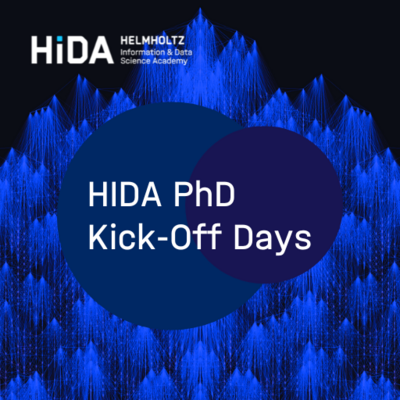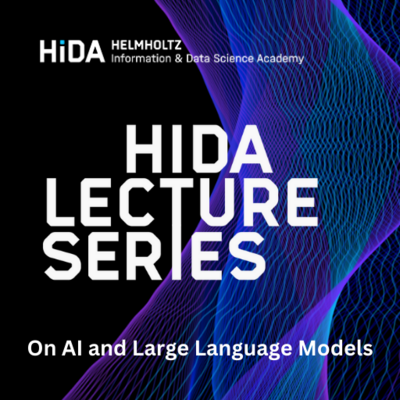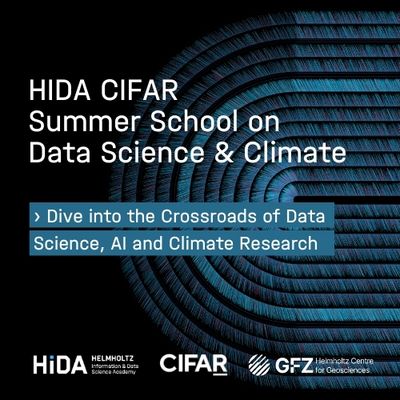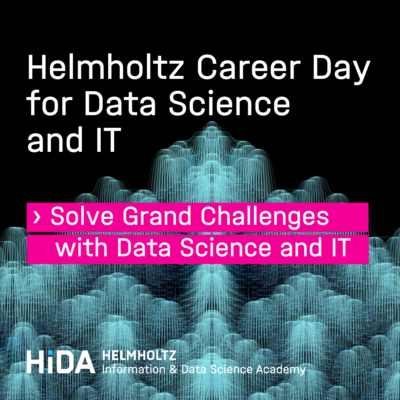Love your data? Make it reproducible!
A workshop on reproducibility in data science
Reproducibility in Science is increasingly receiving attention by the international academic community and is steadily gaining importance. Ensuring transparency of your research project does not only add value to the quality of your project, but also adds to the development of a scientific community that can validate and strengthen research outcomes on the long run. In this event, organized by the Helmholtz Open Science Office and HIDA, we will focus on digital reproducibility using and citing software as well best practices in data science.
We will start the event with two key notes on reproducibility, first in the context of open science (Bernadette Fritzsch) and second in relation to data science and AI methods (Tingying Peng). Afterwards, you will have the choice to attend and actively take part in one of these three workshops:
- Data and reproducibility management with DataLad by Adina Wagner (FZ Jülich)
- Practical steps towards reproducible science by Heidi Seibold
- Software Citation- Current Practice and Recent Developments by Tobias Schlauch (HIFIS)
Registration is closed for this event!
Organizers
This workshop is part of the International Love Data Week 2023!
The Helmholtz Open Science Office supports the Helmholtz Association as a service provider in shaping the cultural change towards open science. It represents Helmholtz in various open science initiatives, is involved in third-party funded projects, and in this way communicates the Helmholtz positions on open science on a national and international level.
HIDA - the Helmholtz Information & Data Science Academy - is Germany’s largest postgraduate training network in the field of information and data science. We prepare the next generation of scientists for a data-heavy future of research.
Speakers
Bernadette Fritzsch studied physics with a doctorate in physics of solid states. After completion she switched to climate research. At the datacenter of the Alfred Wegener Institute, Helmholtz Center for Polar and Marine Research Bremerhaven, Bernadette Fritzsch provides user support in the area of high performance computing for earth system modeling and research data. She has been involved with research software since her studies, is a founding member of de-RSE ,and has been on the board of the association since it was founded. She is also a founding member of the German Reproducibility Network (GRN) and is active in its steering group.
Tingying Peng is Helmholtz AI young investigator group leader of "AI for microscopy image analysis". As indicated by the group title, the mission of the group is to create new AI methods to help life scientists and pathologists to analyze microscopic images more quantitatively and efficiently, allowing them to extract more knowledge. Her group has worked on various microscopy imaging types, including histopathological images for computational pathology, classic brightfield and fluorescence images, and more advanced ones, such as Cryo-electron tomography (Cryo-ET), 3D light-sheet microscopy and, extended depth-of-field (EDOF) microscope with "Electrically Tunable Lenses". Before joining Helmholtz, Tingying Peng obtained her PhD degree in University of Oxford and was also a Humboldt postdoc at the Technical University of Munich.
Sophia Wagner is a PhD student in Computational Pathology, Computer Vision, Deep Learning at Helmholtz AI and the Technical University Munich.
Tobias Schlauch is working for the Institute for Software Technology at the German Aerospace Center (DLR) since 2005. He contributed to different research projects as software engineer with regard to workflow and data management and supported them in context of software quality assurance. Since 2009, he serves as the representative of the DLR software engineering initiative.
Adina Wagner is a research associate at the Forschungszentrum Jülich and doctoral researcher at the Heinrich Heine University Düsseldorf. She is a software developer for the DataLad project, an open source data management tool built upon Git and git-annex, and a proponent of open science, open source, and reproducible research.
Heidi Seibold is an expert for open and reproducible research, with a focus on data science and health research. She is the host of two podcasts: "Open Science Stories" and ">reboot academia". You can follow Heidi Seibold on Twitter.





